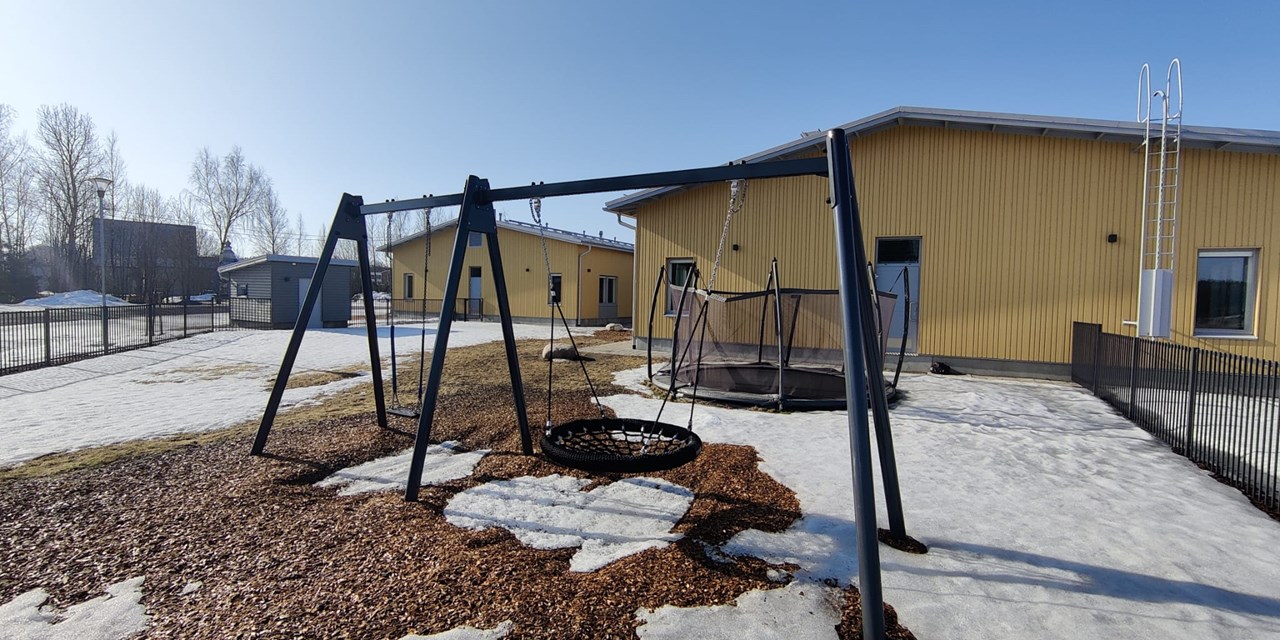Country selector

Corporate
Country Selector: Corporate
The Sauvo residential care unit is a home for adults with developmental disabilities or autism who need support and guidance around the clock. Everyday life in the residential care unit is facilitated by Ascom’s personal safety solution that increases the safety of both staff and residents.

The Sauvo unit is one of the residential care units that offer demanding services for people with disabilities in the wellbeing services county of Southwest Finland. The unit provides a community and meaningful daytime activities for 12 young adults with developmental disabilities or autism. The residents need everyday support and guidance.
“Each resident receives support according to their individual needs. For example, the residents are allowed to eat on their own, but some of them need guidance during mealtimes,” explains Mea Mattila, who works as a counselor at the unit.
The unit is specialized in autism work and employs a multidisciplinary group of nurses, counselors, nurses and sign language experts. Their common goal is to provide every resident with the best possible, personalized life.
“We oversee the everyday life of the unit, develop operations and organize meaningful activities for the residents.”
Shared experiences of success make the work meaningful.
Over time, the employees get to know the residents better, as well as their habits, needs and body language, which can prevent situations that can escalate, for example. However, this is not always enough – the Ascom teleCARE IP personal safety solution helps to anticipate and de-escalate situations in the residential care unit.
“There are three home groups in our unit that the employees on duty are divided into. Every employee has a portable assistance button, a wireless alert device that can be pressed to call for help. The alarm is heard by other home groups and the display on the corridor between different facilities shows where the alarm was triggered. This way, employees from other home groups know where they are needed,” says the unit’s Service Supervisor Marko Tuominen.
According to Tuominen, alerts are triggered in threatening situations or situations that may escalate. Proactive alerts often help to get the situation under control.
“Residents can get nervous if they cannot direct the employee’s attention to what they want. This may lead to the resident grabbing the employee and pulling them away. The employees who are alerted to help can calm the resident and another staff member may, for example, be able to understand more quickly what the resident wants. The aim is to resolve situations in a controlled and safe manner so that residents do not violate anyone’s bodily integrity,” Mattila says as an example.
Door alerts also is use at night. In addition to the alert on the corridor display, if a resident opens the door to their room, the night shift staff will receive a notification on their handsets.
“This way, employees on the night shift know that they need to check the situation and make sure that the resident is doing well. The resident may need help with going to the toilet or comfort if they cannot sleep, for example," says Mattila.
Alerts improve the safety of both staff and residents.
The Sauvo residential care unit, which was completed in 2021, has been equipped with an Ascom personal safety solution from the very beginning. The employees consider it an important tool that makes their work easier and streamlines the unit’s daily work.
Tuominen considers it important that alerts are triggered at a low threshold. Help can also be requested in non-threatening situations if the employee needs counseling assistance, for example.
“The alerts are responded to well here and they enable everyone to get help quickly.”
According to Tuominen, the alerts improve the safety of both staff and residents. It is in everyone’s interest to get help quickly and avoid threatening situations.
“Thanks to the alerts, we know where help is needed and they allow us to provide safety to the residents’ daily activities,” adds Mattila.
The work in the residential care unit is demanding, but the shared experiences of success are rewarding and make the work meaningful. According to Mattila, the best thing about the job is the joy that the residents feel when they get to do meaningful things. Tuominen, who has worked in the industry for almost 20 years, agrees.
“This job is challenging, but engaging – it drew me in back in 2005,” he laughs.